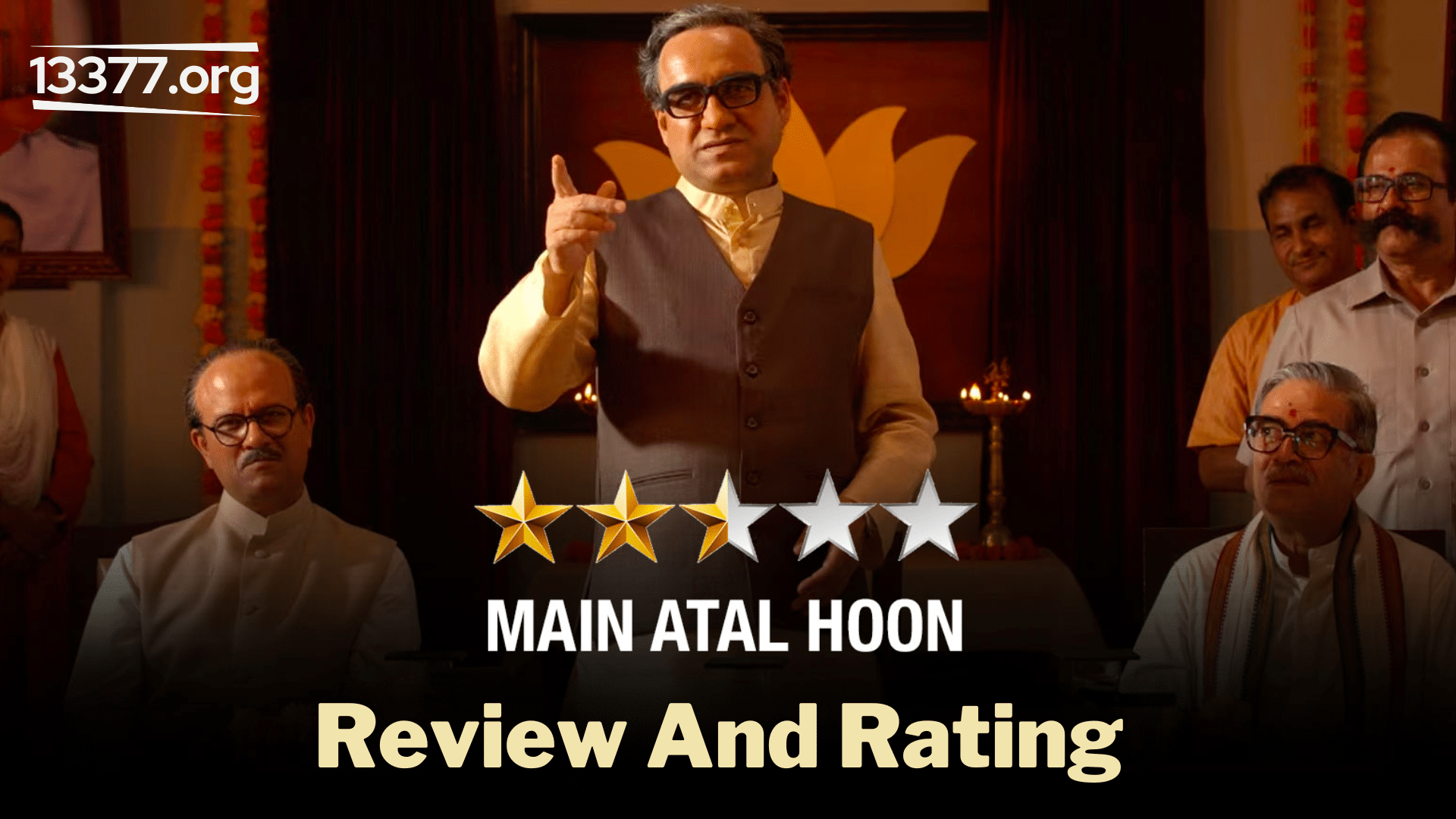Movie: The Great Indian Family
Director: Vijay Krishna Acharya
Writer: Vijay Krishna Acharya
Cast: Vicky Kaushal, Manushi Chhillar, Manoj Pahwa, Kumud Mishra, Yashpal Sharma
Creating a religious satire in today’s climate is undoubtedly challenging, but deriving enjoyment from one can be even tougher. As a viewer, you find yourself perpetually teetering on the precipice of uncertainty, questioning your connection with the film. When you witness a saffron-clad pandit charging through a Muslim neighborhood after cracking a ‘Surgical Strike’ joke, you can’t help but wonder if it’s crossing a line. When a Brahmin man sternly declares, “Hindu khatre mein nahi dal sakte (we cannot put Hinduism in danger),” to his progressive nephew, it feels uncomfortably direct. And when you observe a comical rivalry between two godmen vying for the ‘ritual contract’ of a wealthy family, you’re left wondering if the filmmakers can actually do that.
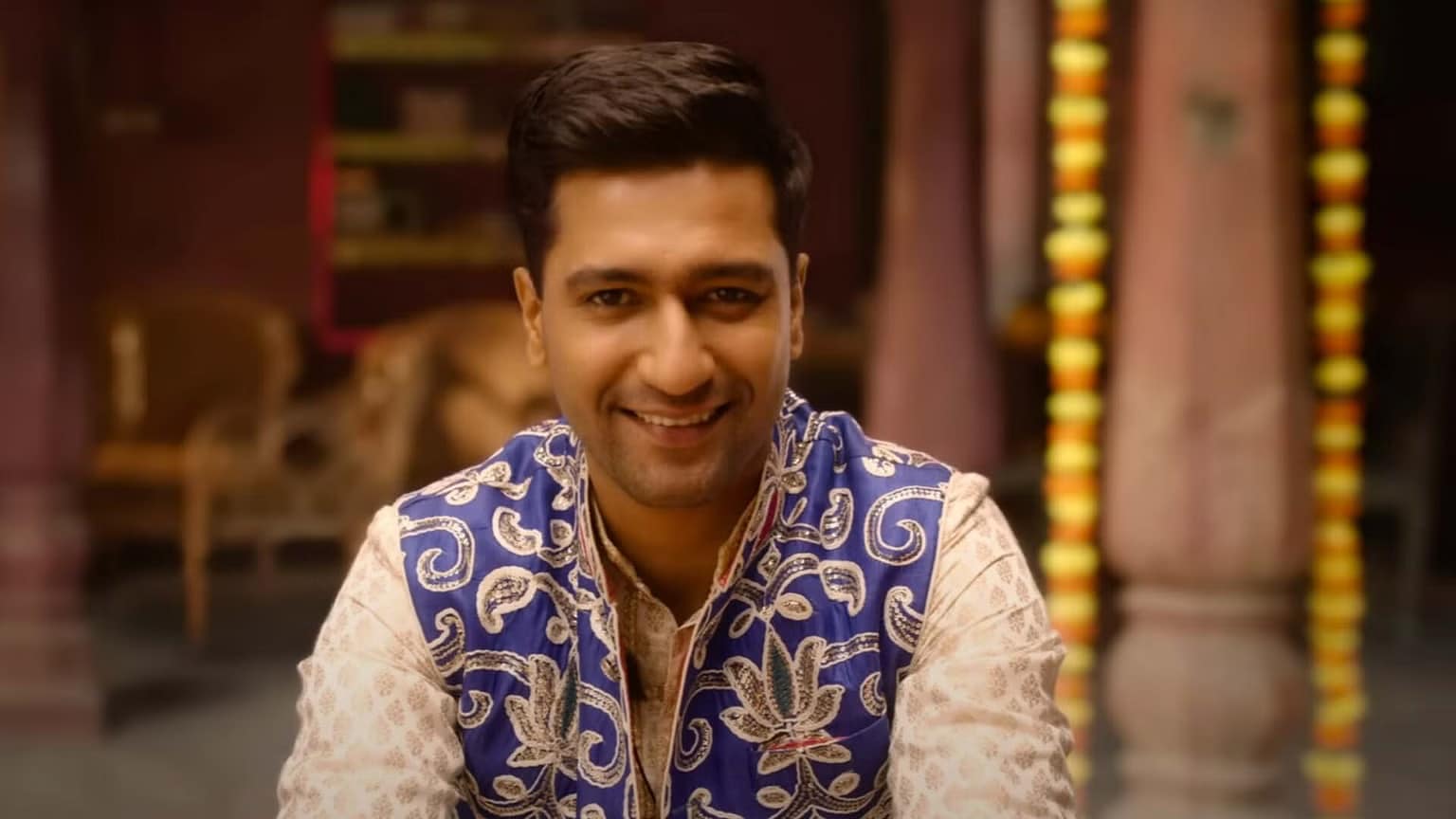
A young man asking his girlfriend whether his kiss felt Hindu or Muslim (to which she replies “Indian”) raises concerns about whether people will grasp the humor. Similarly, a confused hero attempting to embrace Islam by practicing Urdu but confusing “Allahu Akbar” with “Salaam Walekum” leaves you apprehensive for the film’s reception. Even a pandit on a scooter escaping traffic violations by chanting “Jai Shri Ram” to the police can make you question whether it’s venturing into risky territory.
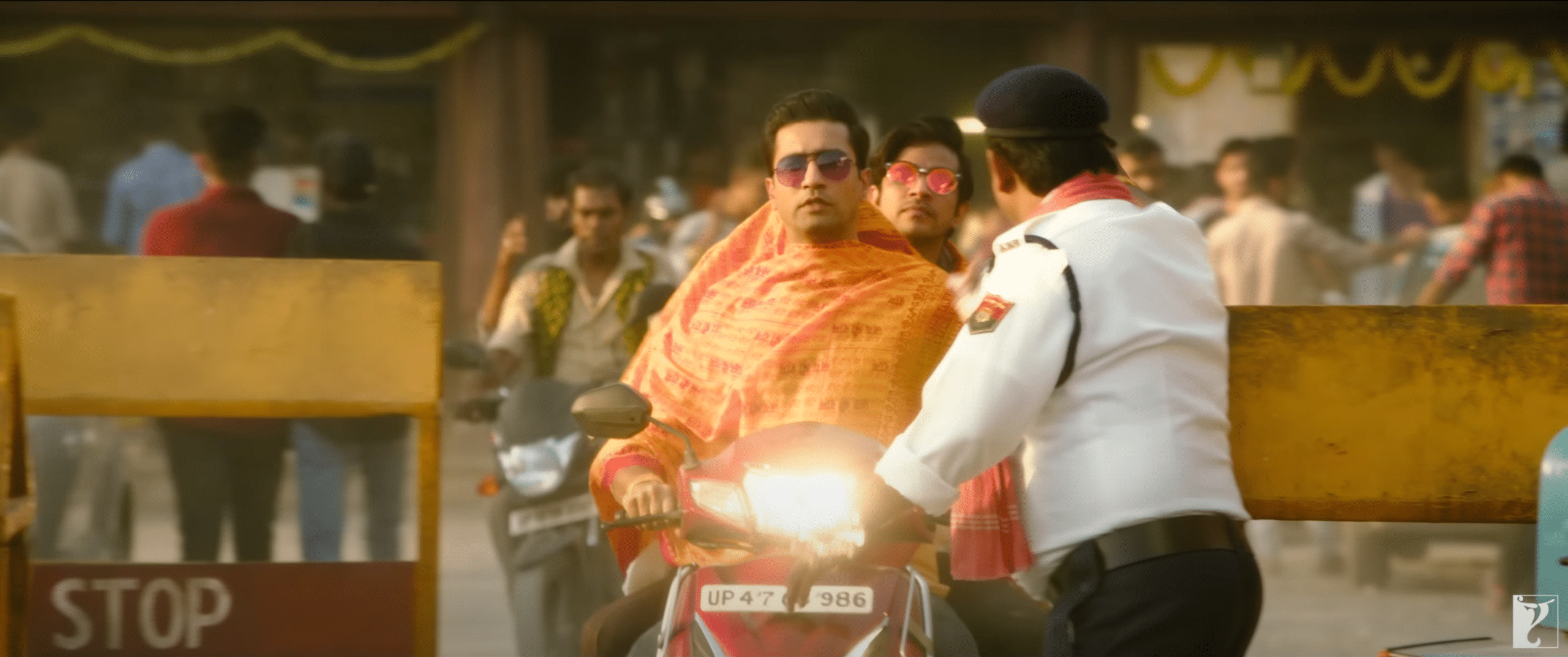
The true victory of “The Great Indian Family” lies in its unwavering spirit amidst the prevailing climate. The film exudes a sense of fearlessness when it comes to how it might be perceived. It wholeheartedly embraces playfulness, directness, melodrama, corniness, cheekiness, and even preachiness without apologies. There’s a genuine innocence in the way its narrative unfolds—a purity that has become a rare commodity in today’s politically charged and reactive landscape of Hindi cinema. While it may reflect the India of 2023, its essence could have been crafted in any of the preceding decades. The film wears its message on its sleeve, with more text than subtext, embodying an old-school form of secularism. It’s a nod not only to the straightforward satires of recent years (such as “Dharam Sankat Mein” in 2015, “PK” in 2014, and “OMG – Oh My God!” in 2012) but also to the outspoken social narratives of the Seventies and Eighties.
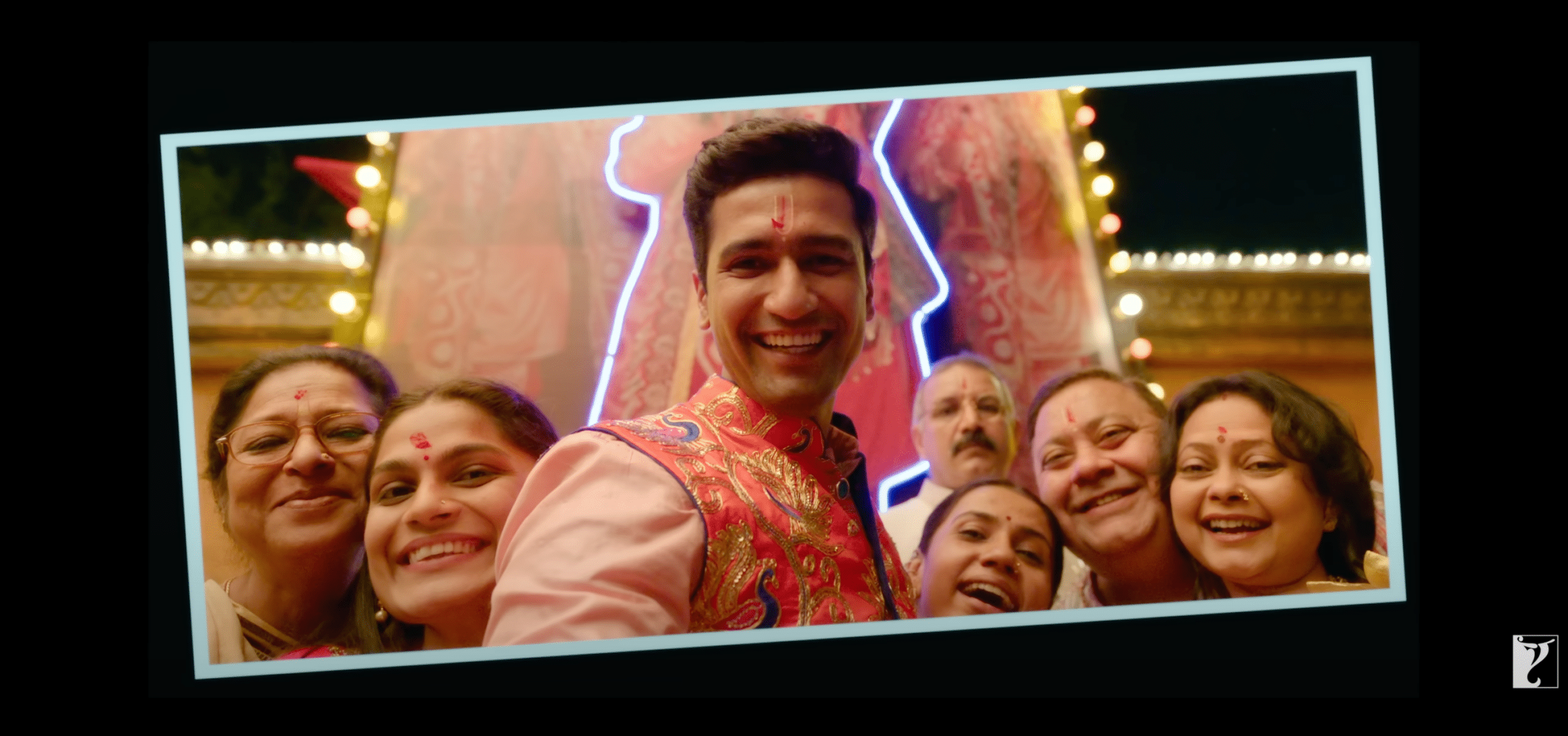
In a curious way, it feels fitting that this unadorned sense of awareness emanates from the House of Yash Raj Films (YRF), a storytelling realm where tradition often takes on the guise of innovation. At some juncture, the film, with its audacious avoidance of the traps of contemporary discourse, manages to soothe the apprehensions of its more anxious viewers (myself included). The external noise recedes into the background, the nerves cease their jangling, and what remains is lighthearted, good-natured entertainment.
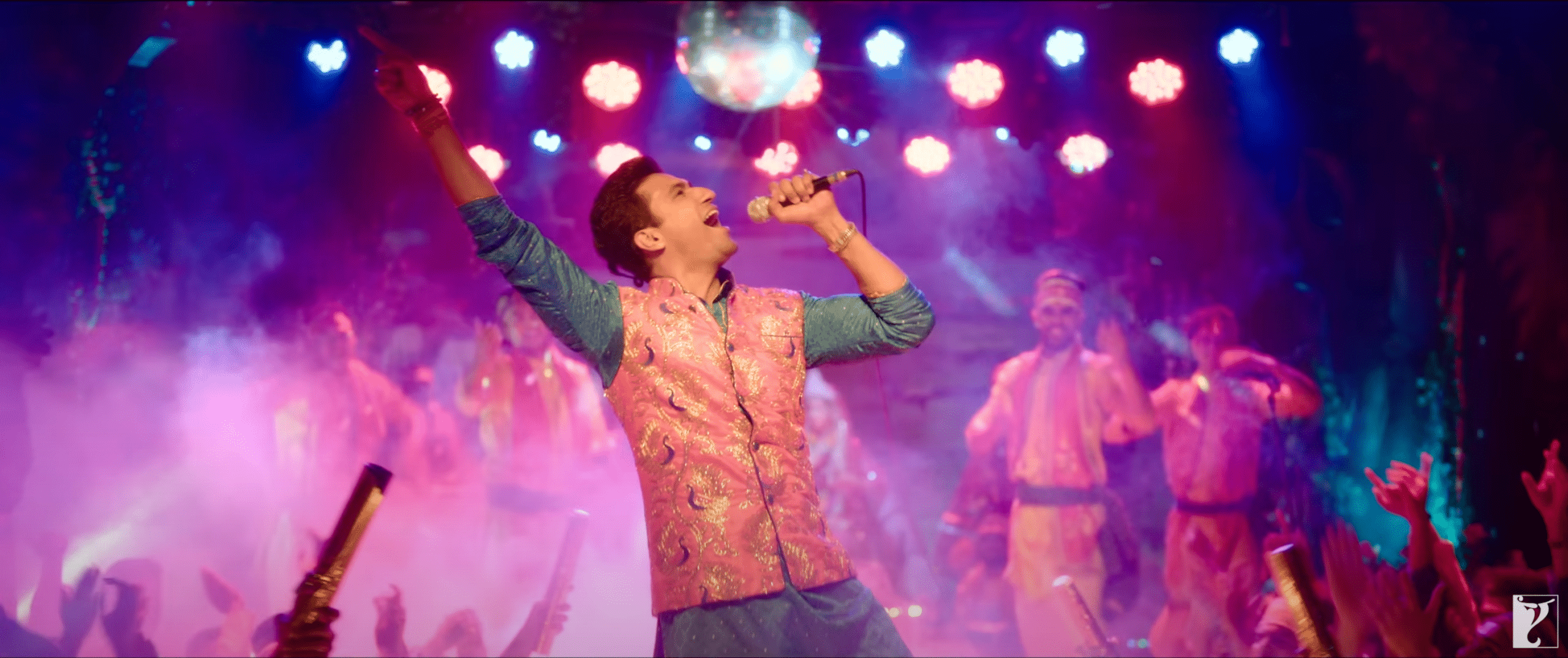
Ved Vyas Tripathi (played by Vicky Kaushal) has two close friends, Bhaata (portrayed by Bhuvan Arora) and Sarveshwar (played by Ashutosh Ujjwal). He resides in a joint family where he views life as a game of snakes and ladders, with his family members representing the treacherous snakes ready to strike.
The storyline takes a twist when Sarveshwar aims to impress a girl named Jasmeet (played by Manushi Chillar). Ved decides to help Sarveshwar win her over, but in the process, he himself falls in love with Jasmeet. This romantic entanglement creates a conflict between the two best friends.
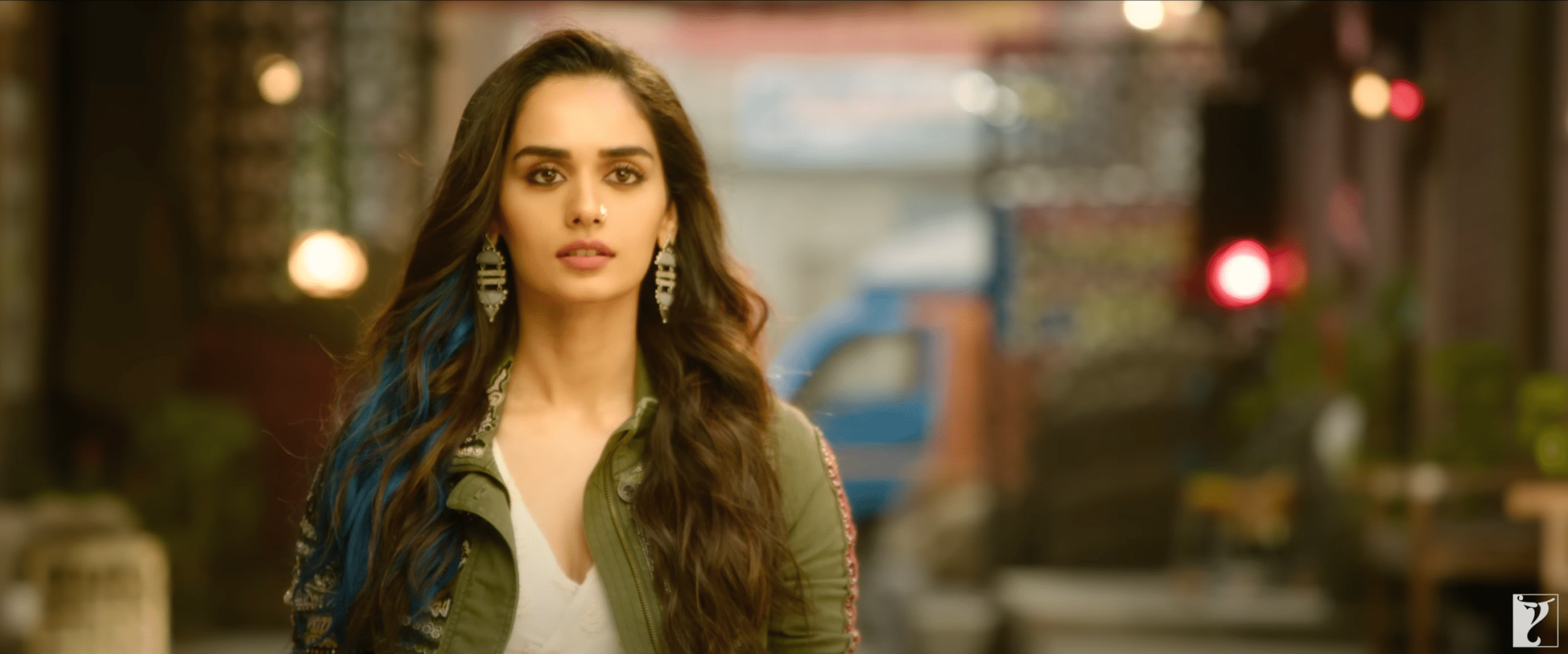
Ved Vyas Tripathi (Vicky Kaushal) and Jasmeet (Manushi Chhillar) grace the movie screen in a captivating romantic musical sequence.
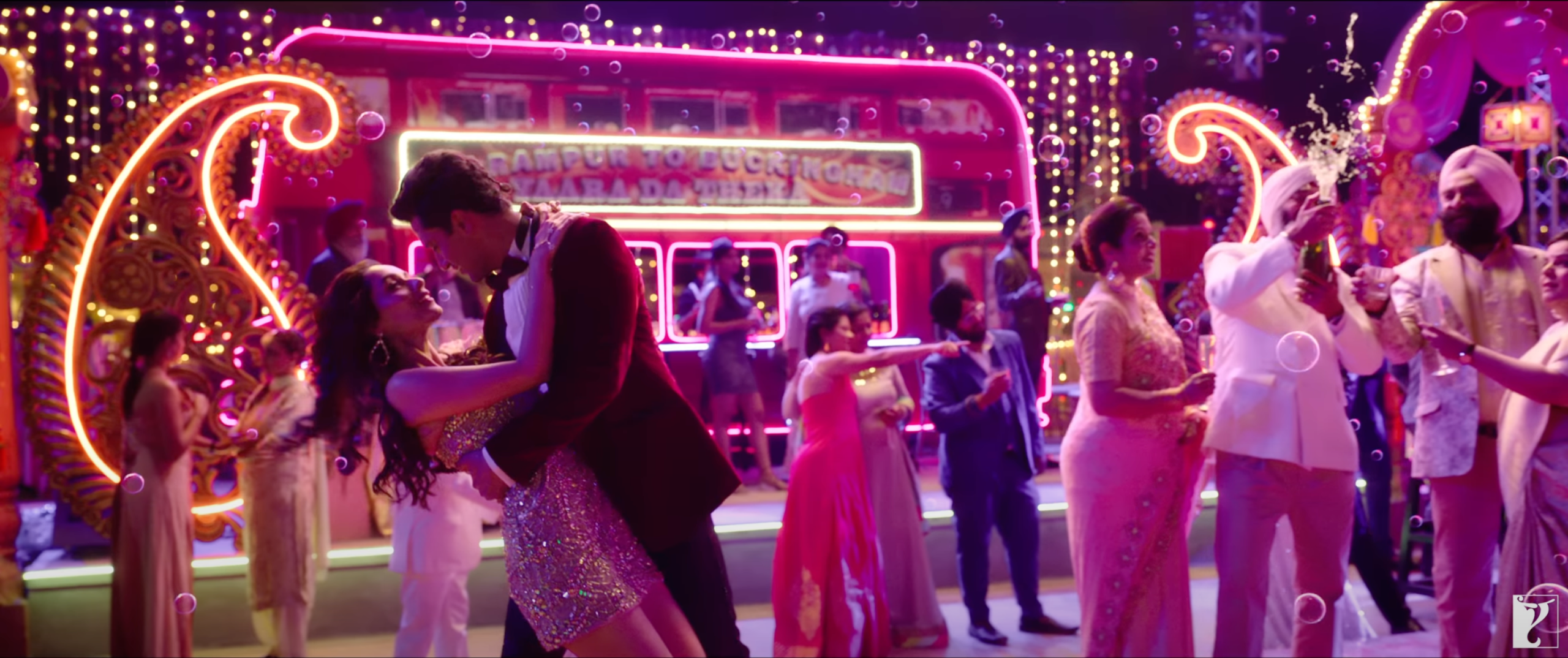
Rejection of Toxic Humour
“The Great Indian Family,” written and directed by Vijay Krishna Acharya, known for films like “Thugs of Hindostan” (2018), “Dhoom 3” (2013), and “Tashan” (2008), takes a premise reminiscent of “Dharam Sankat Mein.” However, the treatment has evolved over time. The narrative is straightforward: Ved Vyas Tripathi (portrayed by Vicky Kaushal), a young pandit from the esteemed Brahmin family of Balrampur, discovers that he is of Muslim descent. What ensues is a comically-serious struggle with issues of identity, faith, and plenty of overt conflicts. Ved Vyas, also known as Billu and Bhajan Kumar, gains (or infamy), goes viral, attempts to ‘learn’ the ways of a Muslim, engages in emotional confrontations with his family, and delivers a monologue that only a versatile actor like Vicky Kaushal can master.
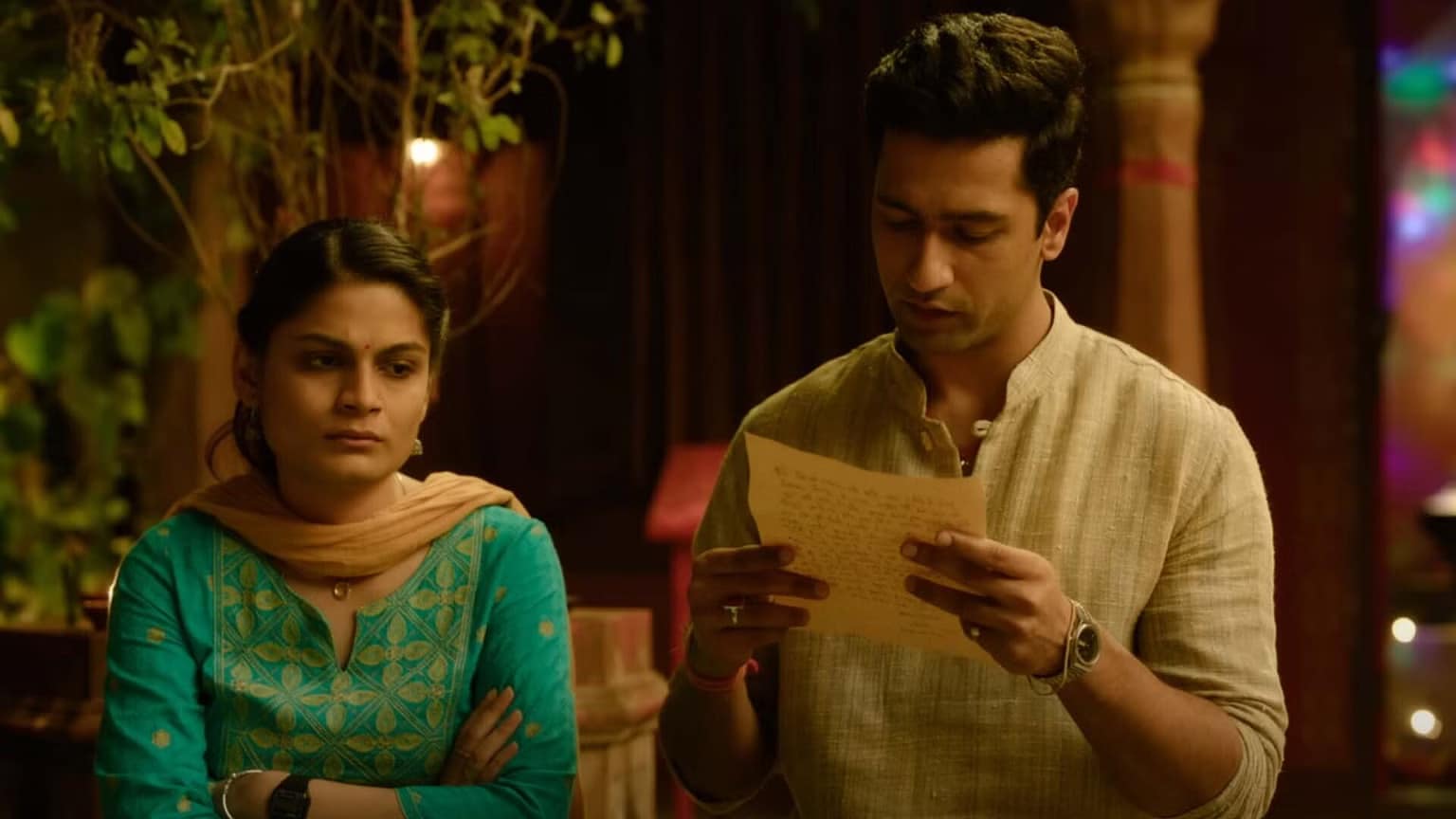
While the plot follows familiar tropes with no unexpected twists, it’s the film’s approach that defines its underlying theme. It refrains from demonizing one faith to exalt another, its characters are portrayed as flawed yet capable of change, and the setting is marked by historical tension rather than bitterness.
The film pays attention to the finer details. For instance, Billu’s voice-over is enriched by Kaushal’s skillful blend of respect and irreverence. The setting is meticulously crafted, bordering on utopian. Instances of Hindus chasing Muslims, or vice versa, don’t carry a sinister tone; in this film, such pursuits lead to college-style pranks rather than violence. The underlying tensions are largely harmless, with a rival pandit family appearing as conventional antagonists rather than fervent Islamophobes. The depiction of a communal riot is understated, focusing instead on a mix-up in a hospital. Even when Billu becomes the target of harsh online trolling, complete with photoshopped images and derogatory slogans, there’s a non-toxic playfulness in these sequences. This quality is reminiscent of Rajkumar Hirani’s blockbuster films, where the message often takes precedence over the method.
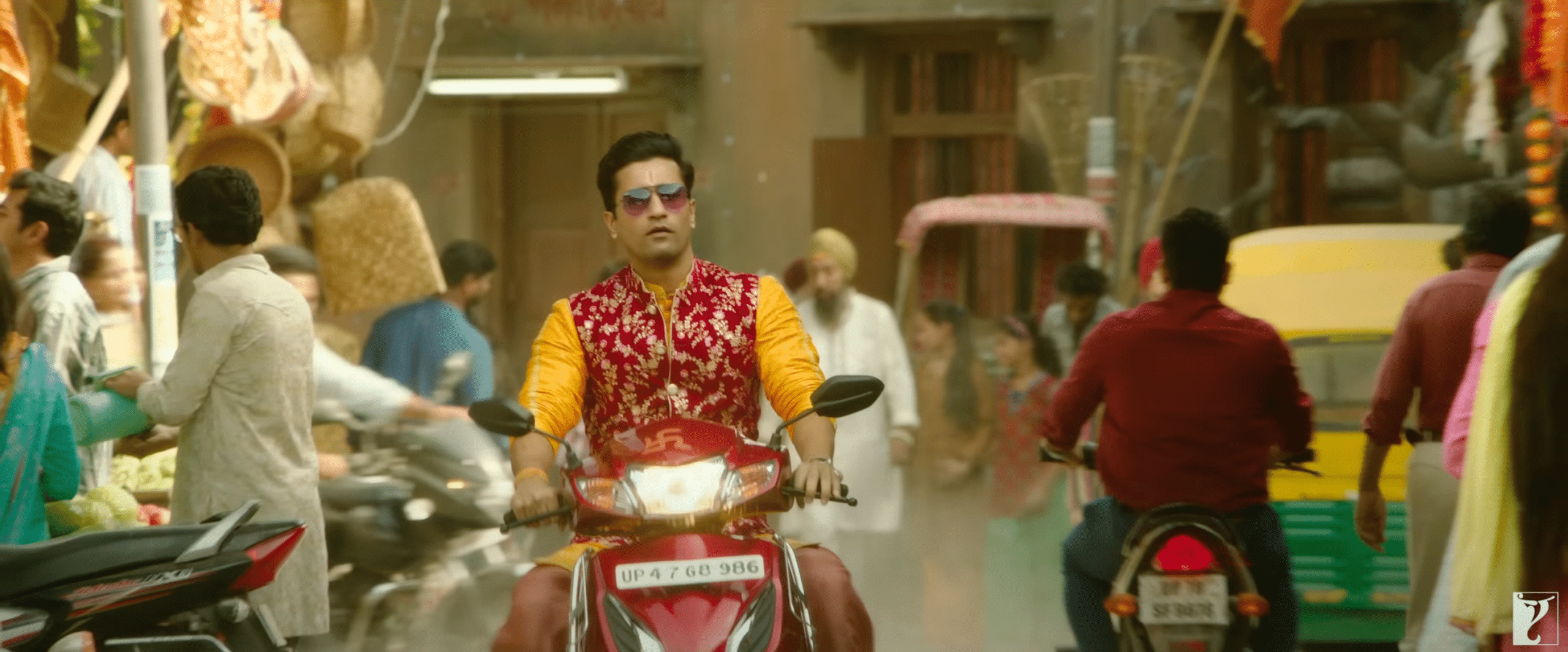
The atmosphere surrounding Billu’s childhood experiences, where he reluctantly becomes a performer of bhajans at his school crush’s birthday party, carries an amusing tone that avoids aggression. Unlike a lesser film that might dwell on the love-hate dynamics of religion, here, the young boy regards his faith as a family tradition and a means for his artistic expression. Furthermore, his understanding of Hinduism is never insincere or rebellious; if anything, it’s more balanced than that of the middle-aged adults in his midst.
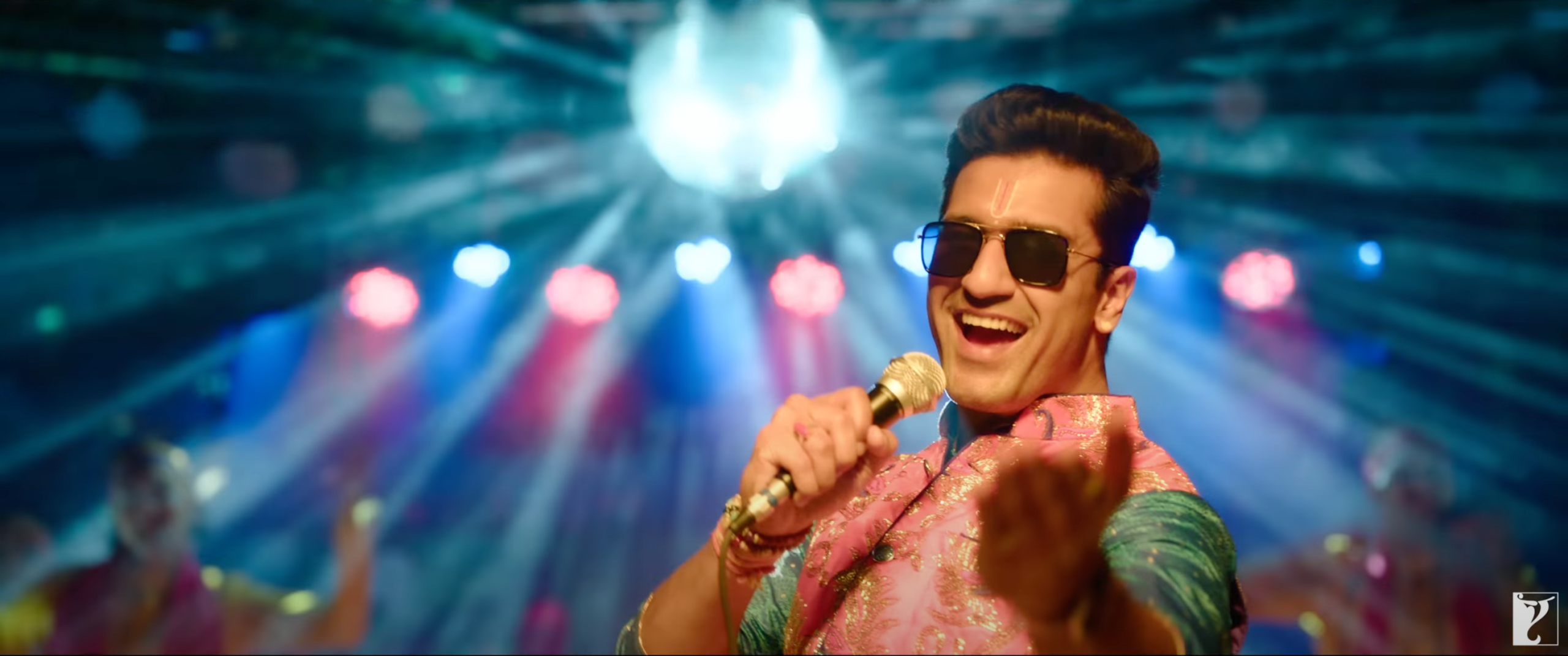
What’s particularly appealing is the central tradition of the Tripathi family, which revolves around ‘democracy.’ In this system, a voting box is employed to settle sensitive matters, such as whether Billu should be disowned or not. Clearly, the metaphors in the film are overt but endearing in their simplicity.
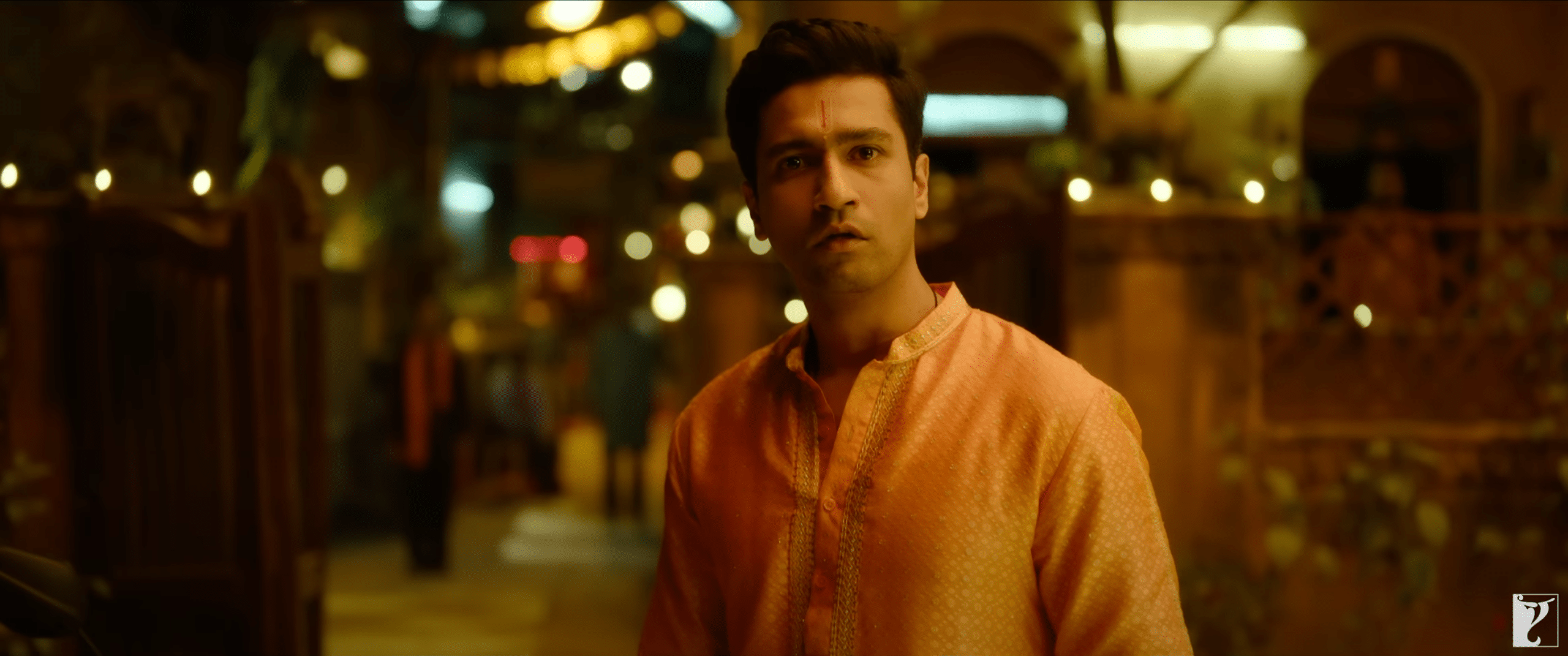
Rising Above Prejudice
It’s also commendable that the film’s commentary in the end avoids taking sides. It admonishes the public, indeed, but it also emphasizes that democracy is the language of diversity. It’s about choice, not imposition, and the prosperity of one community need not be perceived as a threat to another. Consequently, the sense of ‘Indian-ness’ that emerges feels a bit more authentic. It encourages you to overlook the flaws typical of studio-made films, such as a wholly unnecessary romantic subplot, the perpetuation of caste dynamics, a few celebratory songs, and a father-son subplot that conveniently places the Tripathi patriarch (played by Kumud Mishra) on a distant pilgrimage while Billu’s world is torn between saffron and green.
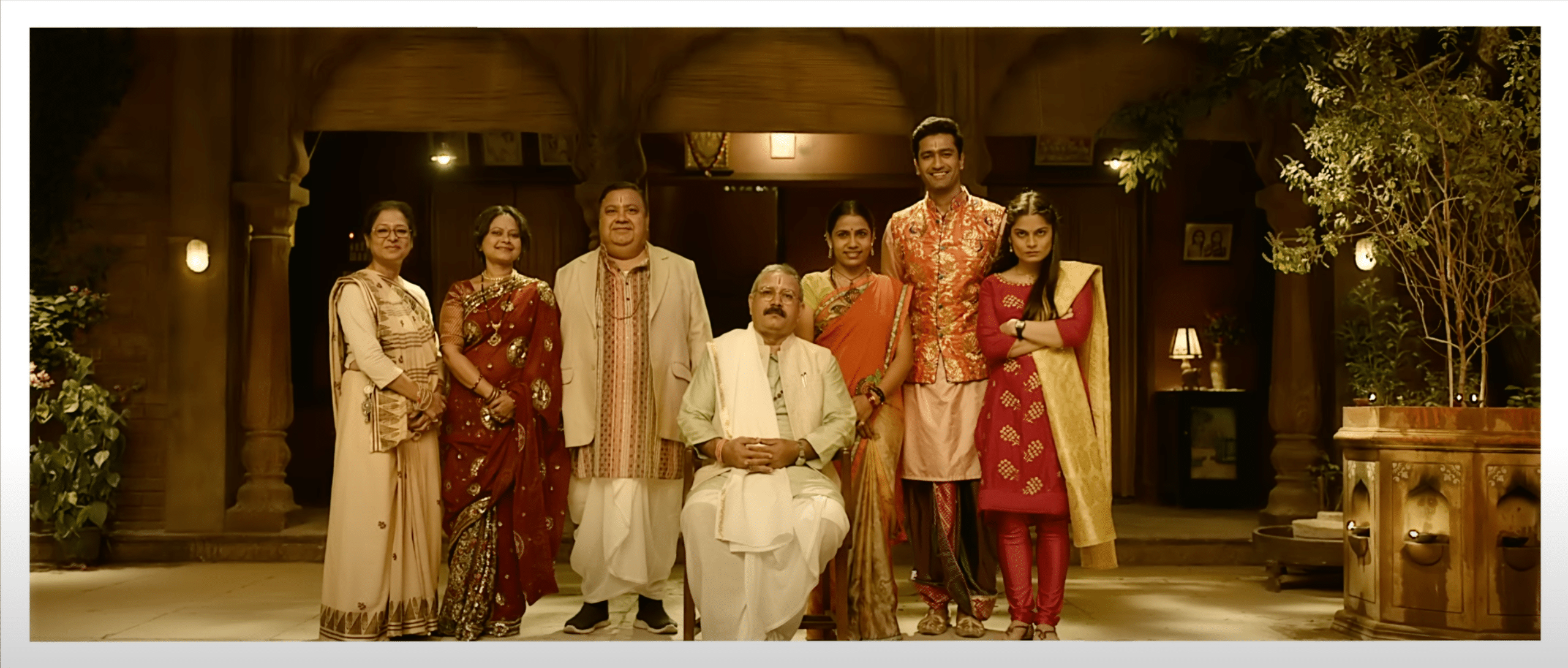
Fortunately, veterans like Mishra possess such insight that a single smile can transform a potentially contentious moment, such as the father ‘confronting’ his son at the gates of a mosque, into a poignant reckoning.
The film also addresses the incorporation of lazy stereotypes as a form of cultural conditioning. Billu and those like him are portrayed as victims of ignorance; they are unaware of any alternative perspectives. Consequently, Billu’s interactions with a kind Muslim family serve as both comedic moments and educational opportunities. There’s always an undercurrent of hope in the way he embraces learning, imitation, occasional embarrassment, and understanding.
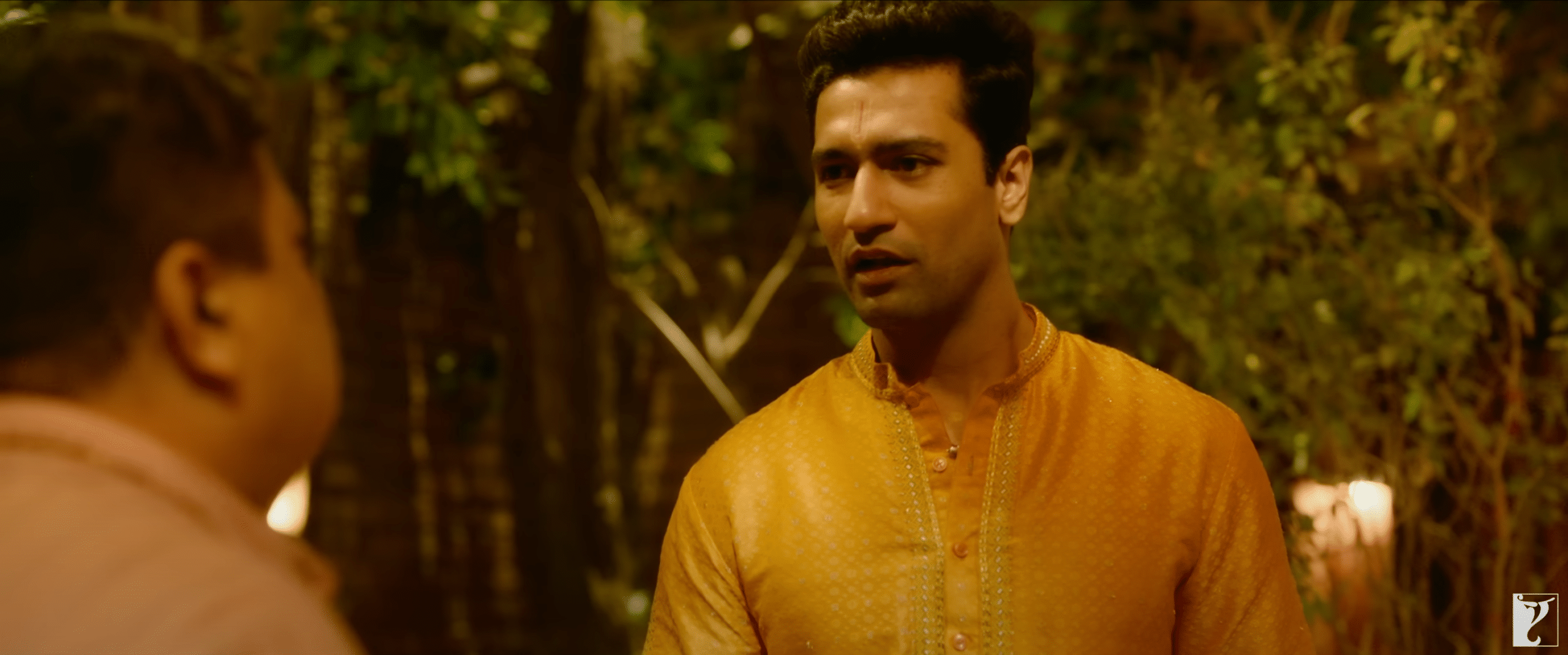
At one juncture, when Billu’s Muslim friend pokes fun at his pronunciation, it almost feels like an inside joke about how mainstream Bollywood often thrives on cultural ignorance. In any other context, it’s hard to imagine a scene where a chaste pandit (played by Manoj Pahwa) ‘tests’ Billu by whispering “Allahu Akbar” into his ear while he sleeps. Likewise, a DNA test covered by the media taking center stage in the climax is an unconventional choice. It’s equally unexpected to witness a young Brahmin boy expressing frustration with his heritage because girls revere him as divine and touch his feet.
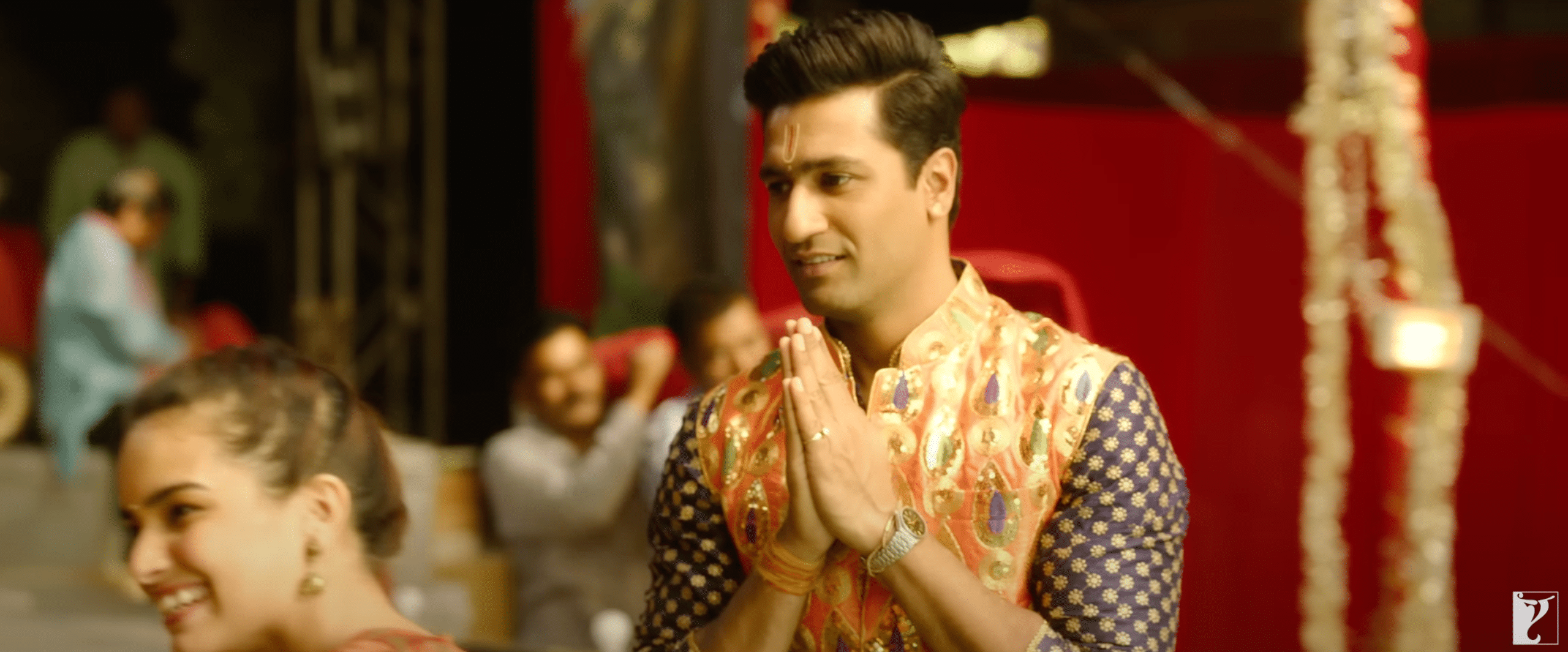
I suppose that’s why I have such an affinity for “The Great Indian Family.” By unfolding in the manner it does, the film reassures us that it’s perfectly acceptable to engage our imaginations once more. It encourages us to cease overthinking and simply continue imagining. Our circumstances aren’t all that different from the gentle fictions it presents. In the story, every character finds themselves caught in the limbo between societal prejudices and their inner truths. They’re all so preoccupied with “what people will say” that they forget they, too, are part of that very society.
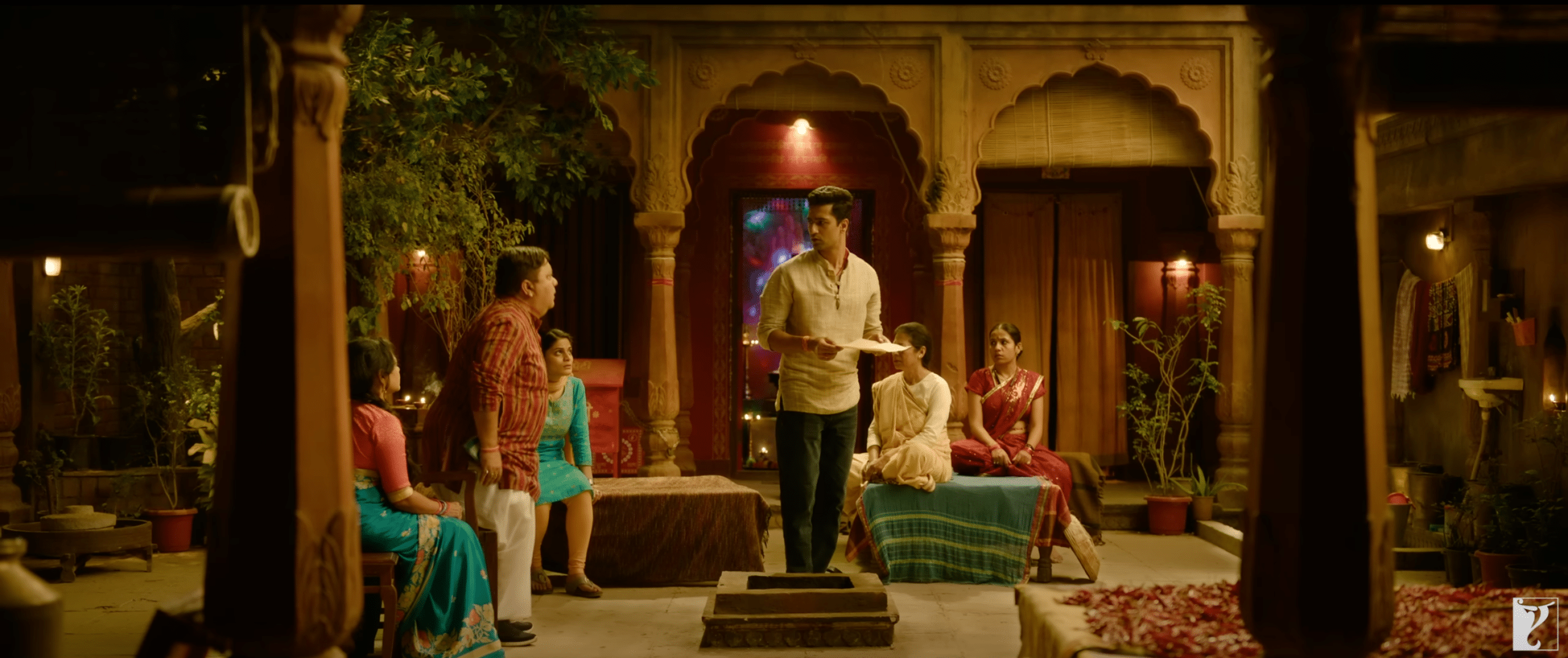
I was overly concerned about how a nation might react to a film, and in doing so, I momentarily forgot that I was an integral part of that nation. The film’s genial tone evoked memories of my own childhood , a time when bigotry had yet to become so prevalent. Back then, concepts like patriotism and religion weren’t as heavily laden with controversy. It’s telling that nostalgia has become a form of imagination in today’s world. It’s not that a film like this doesn’t take itself seriously; rather, it implores us not to take ourselves so seriously.
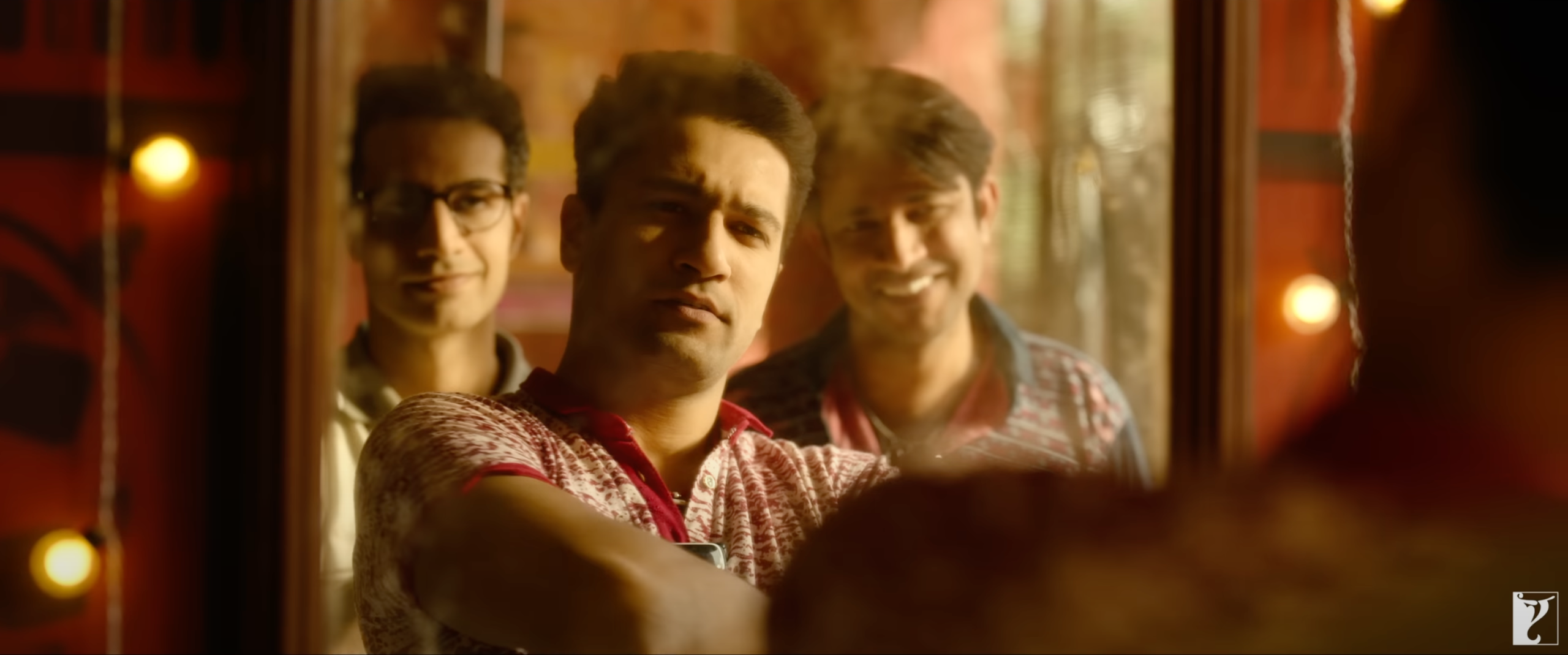
Discover the heartwarming tale of ‘The Great Indian Family’ in this trailer below:






